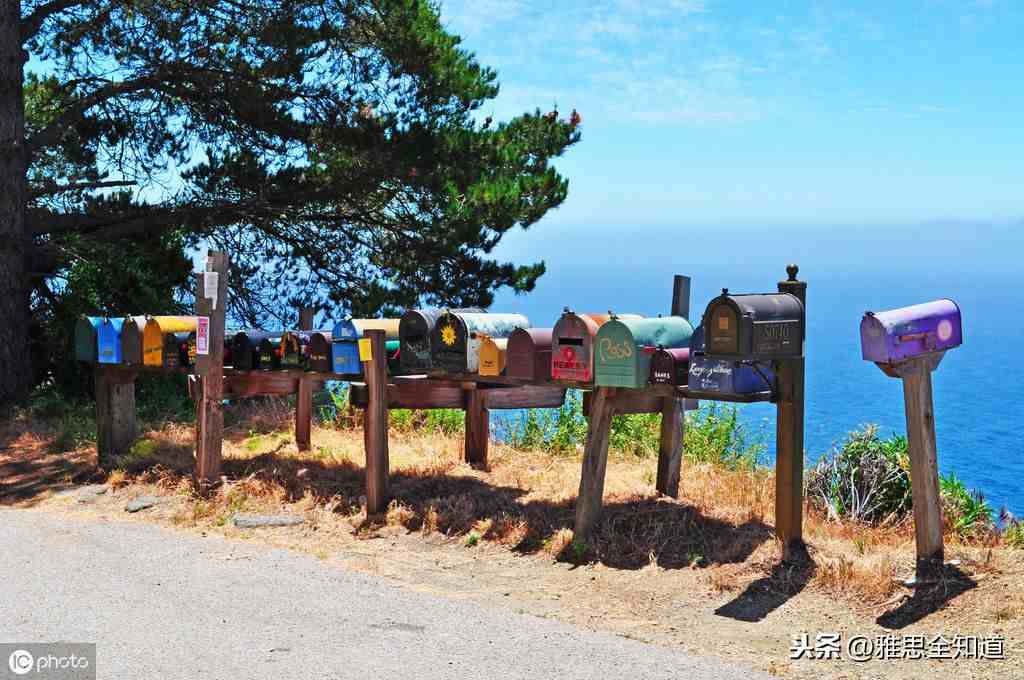邮差先生|(中英)现代散文:邮差先生 Mr. Postman
邮差先生((中英)现代散文:邮差先生 Mr. Postman)
Mr. Postman
邮差先生
◎ Shi Tuo
◎ 师 陀
Mr. Postman would walk up the street with a bundle of letters in his hand. Working in a small town as postman-stamp seller, he still had lots of spare time. Every day he would sit bending over his desk scissor-cutting flower patterns, wearing a pair of glasses for farsighted old people. All this, plus age, had given him a bent back. When the mail arrived, he would stand up, run his eyes over it, pick out the letters he was to deliver, and carefully bundle them up.
邮差先生走到街上来,手里拿着一大把信 。在这小城里他兼任邮务员,售票员①,但仍旧有许多剩余时间,每天戴上老花眼镜②,埋头在公案上剪裁花样 。因此——再加上岁月的侵蚀,他的脊背驼了 。当邮件来到的时候他站起来,他念着,将它们拣出来,然后小心的扎成一束 。
This letter is from a real far place! he could not help sighing inwardly when he happened to catch sight of a letter from a remote province, such as Yunnan or Gansu. He had never thought of a place farther than that, though he himself had no clear idea at all where it was located. Who was to blame for its being so far away that people had to deny themselves, for life, the pleasure of eating, say, millet in Gansu or salted turnip in Yunnan?
“这一封真远③!”碰巧瞥见从云南或甘肃寄来的信,他便忍不住在心里叹息 。他从来没有想到过比这更远的地方 。其实他自己也弄不清云南和甘肃的方位——谁教它们处在那么远,远到使人一生不想去吃它们的小米饭或大头菜呢?
Mr. Postman was now carrying various kinds of letters in his hand. Few, however, came from Gansu or Yunnan. Most of them were probably sent by students to their pare百思特网nts.
现在邮差先生手里拿着的是各种各样的信 。从甘肃和云南来的邮件毕竟很少,它们最多的大概还是学生写给家长们的 。
Here's another letter pressing for the allowance, said he to himself. "It'll take the poor old man at least three or four days to raise the money."
“又来催饷了④,”他心里说:“足够老头子忙三四天!”
While walking on the deserted open street, he reminded himself that in case he met a sow approaching with her piglets following close behind he must take care to skirt round them. The small town sun was shining down on his greying head and on the back of his black mandarin jacket. The dust kicked up from under his feet was lucky enough to settle on his white socks and leg wrappings. As a small town postman, he was not liveried. A father would grumble to him again about his own student-son, "Hum, to see him finish school... I'll be finished myself!" Mr. Postman listened smilingly to the poor old man's oft-repeated well-meaning complaints about his beloved son. Of course, not all senders knew him and none would even think of him. But that didn't matter, for he knew about them all and he also knew when they had a new address.
他在空旷的很少行人的街上走着,一面想着,如果碰见母猪带领着小猪,便从旁边绕过去 。小城的阳光晒着他花白了的头,晒着他穿皂布马褂的背,尘土极幸运的从脚下飞起来,落到他的白布袜子上,他的扎腿带上 。在这小城里他用不着穿号衣 。一个学生的家长又将向他诉苦,“毕业,毕我的业⑤!”他将听他过去听过无数次的,一个老人对于他的爱子所发的这种怨言,心里充满善意,他于是笑了 。这些写信的人自然并不全认识他,甚至没有一个会想起他,但这没有关系,他知道他们,他们每换一回地址他都知道 。
Mr. Postman knocked at a door, and stepped inside if it was left ajar.
邮差先生于是敲门,门要是虚掩着,他走进去 。
Anybody at home? he called loudly from the passageway.
“家里有人吗?”他大声在过道里喊 。
As was often the case, he had to wait quite a while. Finally an old lady emerged. Perhaps her son-in-law was doing business elsewhere, or perhaps her son had gone soldiering somewhere. A dog behind her was barking furiously. The old lady had come out in a hurry. She must have been busy with household chores, as witness her hands still dripping wet with water.
他有时候要等好久⑥ 。最后从里头走出一位老太太,她的女婿在外地做生意,再不然,她的儿子在外边当兵 。一条狗激烈的在她背后叫着 。她出来的很仓促,两只手湿淋淋的,分明刚才还在做事 。
What's up? she inquired.
“干什么的⑦?”老太太问 。
A letter, Mr. Postman answered, "a registered one. You're required to stamp your seal here."
邮差先生告诉她:“有一封信,挂号信,得盖图章 。”
- 前宅胡同忆孙道临先生
- 先生冒寒不易
- 开工邀请函格式怎么样?
- 茶话会邀请函范文有没有?
- 蜀南竹海导游词怎么写?
- 会计生的求职信如何写?
- 初中英语教学经验总结怎么写?
- 老先生寿宴主持词如何写?
- 文员自荐信作文怎么写?
- 录用通知书最新怎么写?
